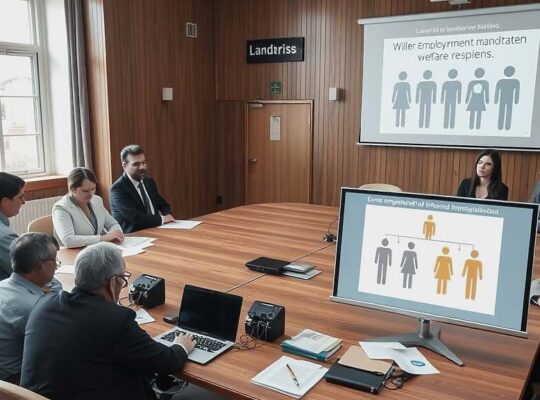A significant majority of German workers express a willingness to extend their working hours, provided the financial incentives are compelling, according to a recently conducted study by the Institute of German Economy (IW), a research institution closely linked to employers’ associations. The findings, detailed in a report by the “Rheinische Post” challenge the common perception that German employees primarily seek shorter working weeks.
The IW’s survey, based on responses from over 5,000 insured and exclusively part-time employees polled online since 2023, reveals that 77% of workers are open to increasing their working hours under the right circumstances. A key factor for accepting extra work, identified by 72% of respondents, is a reduction in the tax and social security burden associated with additional earnings. This sentiment applies to both part-time and full-time employees. Furthermore, full-time employees and part-time workers with a weekly working time exceeding 20 hours are particularly keen on greater flexibility in scheduling their extended hours.
Interestingly, the study highlights a generational divide in attitudes toward working hours. Younger workers, specifically those under 30, display a significantly higher inclination to work longer, with 86% expressing openness to extended hours compared to 69% of those aged 55 and older. The willingness to increase working hours proved relatively consistent across various demographics, showing little correlation with gender, industry, type of work (office-based or otherwise), or professional qualifications. Employees without completed vocational training even exhibited a slightly higher propensity for longer working hours than those with professional qualifications.
These findings contrast with a recent survey by the career network Xing, which indicated that 60% of 2,000 respondents did not want to work longer, with two-thirds expressing a desire to reduce their working hours. However, the IW’s data suggests that the apparent contradiction stems from a focus on the financial and logistical hurdles associated with extended work. The IW concludes that German employees are certainly receptive to increasing their working hours, as long as the negative impact of rising tax and social security contributions is mitigated and the extra time can be effectively integrated into their daily lives.












